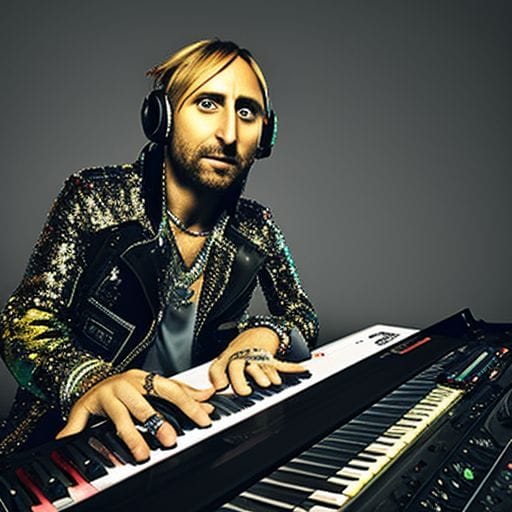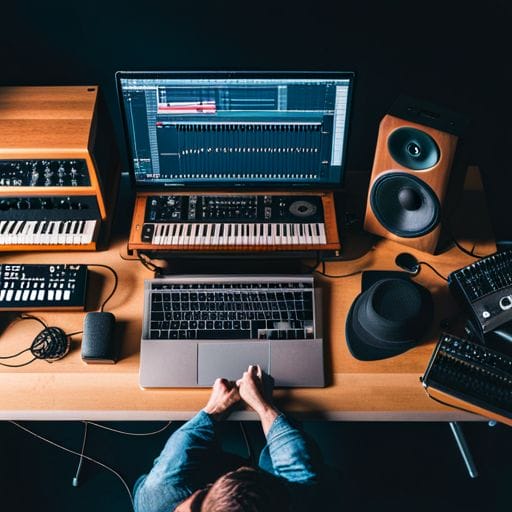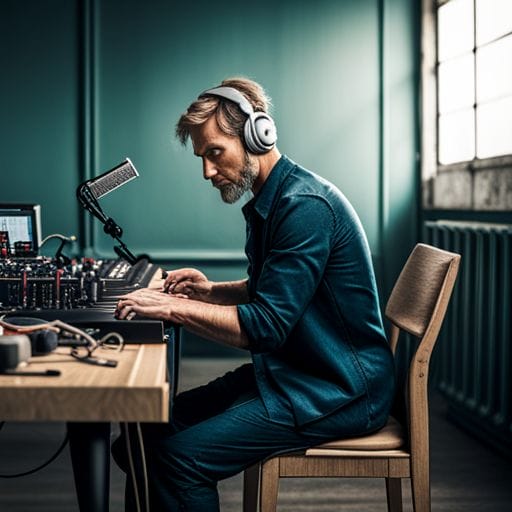How is music production both an art and a science, and what skills and understanding does it require?
Music, often referred to as the universal language, carries a creative, emotional, and cultural significance deeply ingrained in our lives. It’s the backbone of any party, the lullaby for a child, or therapeutic to the ailing soul. But behind every captivating tune is a genius of music production, masterfully orchestrating every beat, rhythm, and sound. This blog post celebrates the intricate world of music production and offers a peek into the magical soundcraft process.
Music production has evolved over time due to the explosion of technologies and the internet, democratizing the production process and making it attainable for beginners and home studio enthusiasts. It’s no longer exclusive to high-end studios, a phenomenon worthy of marvel.
Scope of Music Production
The first step to appreciate music production is understanding its scope. Music production is the process of creating, recording, mixing, and mastering music. It involves overseeing all aspects of a song or album, from songwriting and recording to mixing and mastering. It’s about capturing the artist’s vision and transforming it into a delightful auditory experience.
The production process begins with pre-production, where producers discuss ideas and create a roadmap for the project, often deciding on the beats, tempo, and style. The songs are then written and rehearsed, after which the recording phase begins. After recording comes the mixing phase, where various sound levels are balanced and effects like reverb and delay may be added. The song is then mastered, ensuring it sounds excellent on all kinds of speakers or headphones.
The Art Behind the Artistry
Music production is both an art and science. Crafting a perfect song demands a deep understanding of different musical elements and how they work together to evoke an emotive response. It’s about knowing when to add a bassline, where the drums should kick in, how the background vocals should harmonize with the lead, or how to use silence.
Moreover, it’s about technical expertise—from using the latest software and soundboards to perfecting room acoustics. As a science, it’s about understanding sound waves, frequencies, and synthesis.
Emerging Trends in Music Production
The music industry, fuelled by technological advancements, heralds exciting times. We’re witnessing a seismic shift from traditional production methods to more modern ones.
Digital Audio Workstations (DAW)
These are core to any music production process these days. DAWs not only record, edit, and mix sounds but also provide music producers with a wide selection of virtual instruments and sound effects to work with.
Virtual Collaboration
In this digital age, producers do not have to be in the same room, city, or even country, to collaborate. Musicians can swap files and collaborate remotely, amplifying the richness and diversity of the music produced.
AI and Music Production
Some software can now use AI to produce music independently or offer compositions as starting points for music producers.
Affordable Home Studios
New technologies have made music production more accessible than ever. Aspiring musicians can create high-quality music in their bedrooms without needing a record deal.
Music production is the unsung hero of our favorite songs. It’s the wizardry behind the curtain, the art, and science behind the harmonies that touch our souls. It’s a process that deserves our admiration and appreciation every time we hit the play button on a song.







